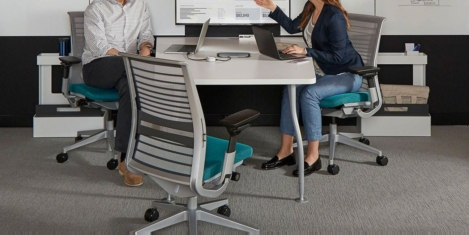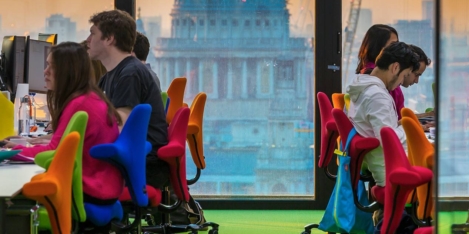May 30, 2017
Facilities managers should become “gardeners” rather than architects, claims report 0
 A new white paper from ’boutique’ facilities management firm Anabas. It claims that the proliferation of diverse office environments and agile working means that facilities managers must develop a greater insight into the behaviour of people to help them deliver. The report, What Type of Office Worker Are you?, claims that it ‘helps to rediscover what it means to be human in the workplace and takes us back to the beginning by focusing on understanding individual behaviours, work styles and how they influence interaction within the workplace itself. It examines the importance of people in the workplace and discusses the ‘work style formula’ of – Culture + Mobility + Temperament – demonstrating how this can guide behaviours. It also claims to identify four main types of worker based on brain chemistry; Pioneers, Guardians, Drivers and Integrators and how despite the differences, each is driven in the same way, by the environment.
A new white paper from ’boutique’ facilities management firm Anabas. It claims that the proliferation of diverse office environments and agile working means that facilities managers must develop a greater insight into the behaviour of people to help them deliver. The report, What Type of Office Worker Are you?, claims that it ‘helps to rediscover what it means to be human in the workplace and takes us back to the beginning by focusing on understanding individual behaviours, work styles and how they influence interaction within the workplace itself. It examines the importance of people in the workplace and discusses the ‘work style formula’ of – Culture + Mobility + Temperament – demonstrating how this can guide behaviours. It also claims to identify four main types of worker based on brain chemistry; Pioneers, Guardians, Drivers and Integrators and how despite the differences, each is driven in the same way, by the environment.













 New guidance to help facilities managers manage the transition to agile working within their organisation has just been published by the British Institute of Facilities Management (BIFM). The Agile Working Change Management Guidance Note is aimed at FMs working at a senior and/or operational level and covers the benefits of agile working and how to successfully plan and implement an integrated approach to deliver sustainable change in working behaviour. Agile working describes a range of work settings that allow people and organisations to make new choices about when, where and how they work. It is underpinned by mobile technology and applies to people working both in and away from the traditional office, such as at home, on the road or remotely in other locations. BIFM’s research and information manager Peter Brogan said: “As an Institute, we recognise the importance of the workplace agenda for FMs and this newly commissioned Guidance Note aims to address the current lack of knowledge around some of the emerging workplace practices.”
New guidance to help facilities managers manage the transition to agile working within their organisation has just been published by the British Institute of Facilities Management (BIFM). The Agile Working Change Management Guidance Note is aimed at FMs working at a senior and/or operational level and covers the benefits of agile working and how to successfully plan and implement an integrated approach to deliver sustainable change in working behaviour. Agile working describes a range of work settings that allow people and organisations to make new choices about when, where and how they work. It is underpinned by mobile technology and applies to people working both in and away from the traditional office, such as at home, on the road or remotely in other locations. BIFM’s research and information manager Peter Brogan said: “As an Institute, we recognise the importance of the workplace agenda for FMs and this newly commissioned Guidance Note aims to address the current lack of knowledge around some of the emerging workplace practices.”





















May 17, 2017
A nuanced approach to the design of the coworking office 0
by Ajay Chopra • Comment, Flexible working, Workplace design
(more…)